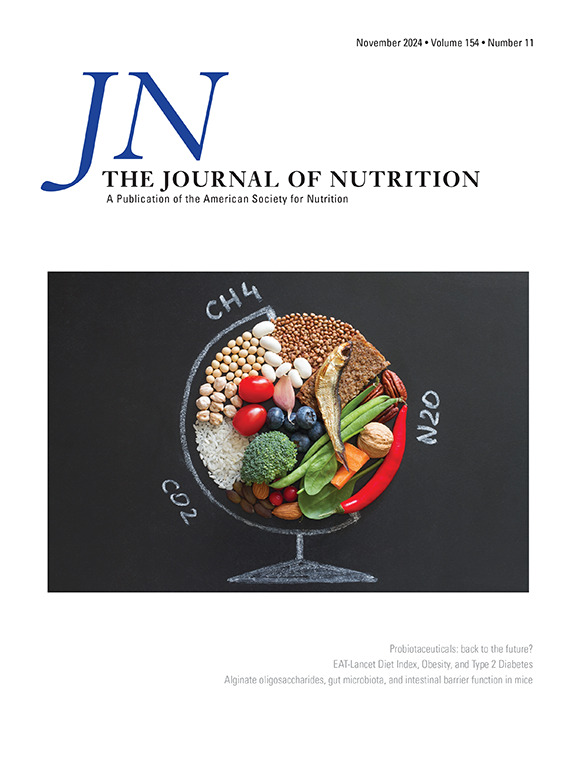鱼类膳食色氨酸的命运:揭示其来源、运输、代谢和多方面的影响。
IF 3.7
3区 医学
Q2 NUTRITION & DIETETICS
引用次数: 0
摘要
对可持续蛋白质来源日益增长的需求使得水产养殖对确保粮食供应至关重要。均衡的富含蛋白质的饮食对于支持养殖水生物种的最佳生长、健康和生产力至关重要。色氨酸是一种必需氨基酸,在蛋白质合成中起着至关重要的作用,也是神经递质的前体,如血清素(5-羟色胺或5-HT)和褪黑素,它们调节鱼类的繁殖、食欲、压力和攻击性。向可持续饲料解决方案的转变强调需要补充色氨酸来解决替代蛋白质来源的不足。补充色氨酸通过促进蛋白质合成、肌肉发育和营养吸收来促进生长,同时通过血清素和褪黑素的合成来减轻压力和炎症。它的抗氧化特性有助于调节氧化应激,防止环境破坏,提高鱼类的恢复能力。色氨酸还调节免疫功能和生殖过程,突出其在水产养殖中的多方面意义。色氨酸与其他营养物质协同作用,促进生长和免疫反应。然而,不平衡的色氨酸水平会损害生长、免疫功能和生产力,因此需要精确的膳食配方。最佳色氨酸需要量因物种和靶功能而异。本文综述了色氨酸在鱼类健康、生长、应激调节、免疫应答、氧化损伤、繁殖、同类相食及其与其他营养物质的相互作用等方面的关键作用,揭示了色氨酸在进一步增强免疫功能和支持代谢调节方面的潜力。本文章由计算机程序翻译,如有差异,请以英文原文为准。
The Fate of Dietary Tryptophan in Fish: Unveiling Its Sources, Transport, Metabolism, and Multifaceted Impacts
The rising need for sustainable protein sources has made aquaculture vital for securing food supply. A balanced protein-rich diet is essential to support the optimal growth, health, and productivity of farmed aquatic species. Tryptophan, an essential amino acid, plays a crucial role in protein synthesis and serves as a precursor for neurotransmitters such as serotonin (5-hydroxytryptamine) and melatonin, which regulate reproduction, appetite, stress, and aggression in fish. The shift toward sustainable feed solutions emphasizes the need for tryptophan supplementation to address the deficiencies in alternative protein sources. Tryptophan supplementation promotes growth by enhancing protein synthesis, muscle development, and nutrient absorption while mitigating stress and inflammation through serotonin and melatonin synthesis. Its antioxidant properties help regulate oxidative stress, protect against environmental damage, and improve fish resilience. Tryptophan also modulates immune functions and reproductive processes, highlighting its multifaceted significance in aquaculture. Tryptophan interacts synergistically with other nutrients to enhance growth and immune responses. However, imbalanced tryptophan levels can impair growth, immune function, and productivity, thus requiring precise dietary formulations. The optimal tryptophan requirement varies among species and target functions. This review aims to highlight the pivotal role of tryptophan in fish health, growth, stress regulation, immune responses, oxidative damage, reproduction, cannibalism and its interaction with other nutrients, demonstrating its potential to further enhance immune function and support metabolic regulation.
求助全文
通过发布文献求助,成功后即可免费获取论文全文。
去求助
来源期刊

Journal of Nutrition
医学-营养学
CiteScore
7.60
自引率
4.80%
发文量
260
审稿时长
39 days
期刊介绍:
The Journal of Nutrition (JN/J Nutr) publishes peer-reviewed original research papers covering all aspects of experimental nutrition in humans and other animal species; special articles such as reviews and biographies of prominent nutrition scientists; and issues, opinions, and commentaries on controversial issues in nutrition. Supplements are frequently published to provide extended discussion of topics of special interest.
 求助内容:
求助内容: 应助结果提醒方式:
应助结果提醒方式:


